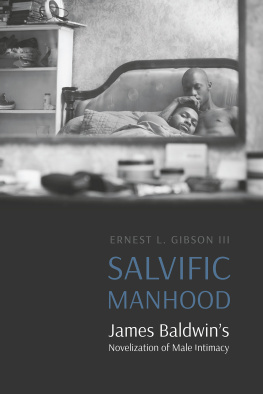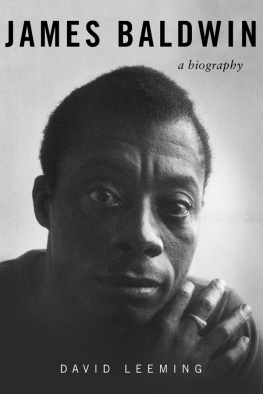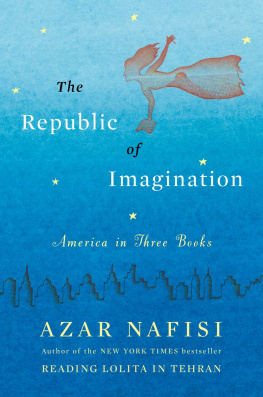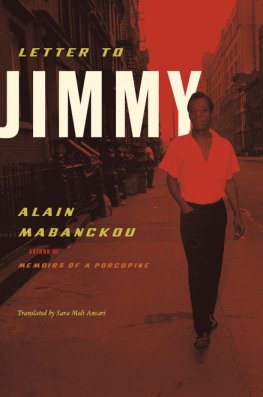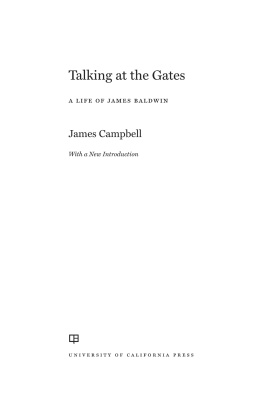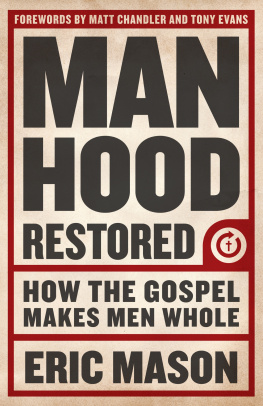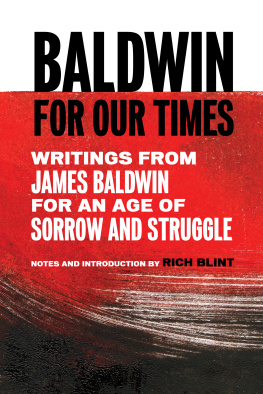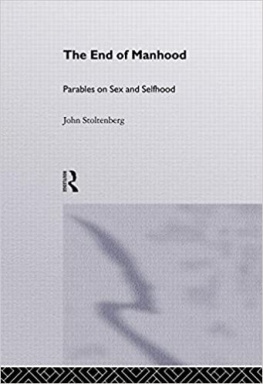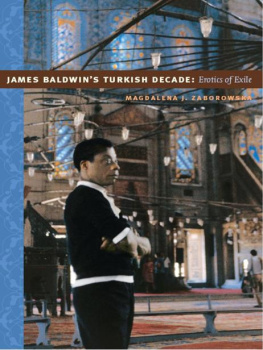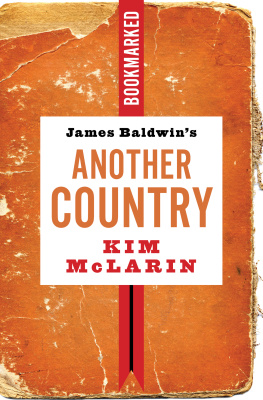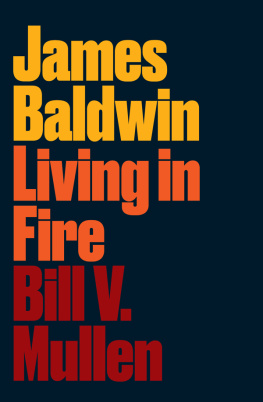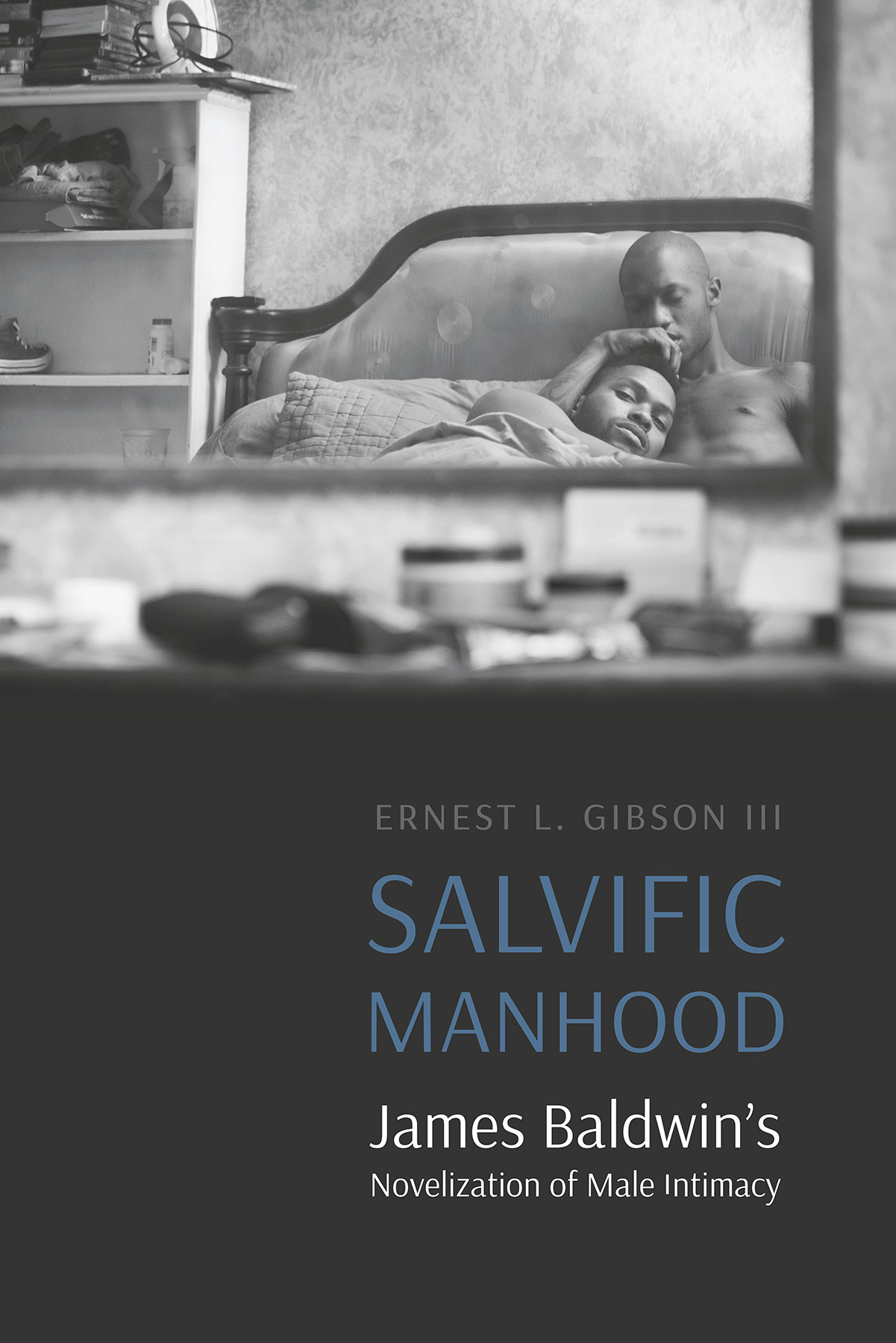
Ernest L. Gibson III has given us a beautifully crafted, truly imaginative, and fresh approach to James Baldwins work.... [It] will be of interest to students and scholars of literary and cultural studies, queer studies, and even religious studies. This is truly an incredibly rich and creative work of scholarship that is not to be missed!
Dwight A. McBride, coeditor of the James Baldwin Review
Salvific Manhood pioneers a timely and provocative discussion of James Baldwins revolutionary ideas on black masculinity. Professor Gibson reenvisions Baldwins novels through fraternal bonds between lovers, kin, and friends, elaborating politics of salvation that simultaneously trouble and bridge spirituality and the erotic.
Magdalena J. Zaborowska, author of Me and My House: James Baldwins Last Decade
Expanding Frontiers: Interdisciplinary Approaches to Studies of Women, Gender, and Sexuality
Series Editors:
Karen J. Leong
Andrea Smith
Salvific Manhood
James Baldwins Novelization of Male Intimacy
Ernest L. Gibson III
University of Nebraska Press | Lincoln
2019 by the Board of Regents of the University of Nebraska
Portions of the conclusion were first published as Digging Through the Ruins: Just Above My Head and the Memory of James Arthur Baldwin in James Baldwin: Challenging Authors, ed. A. Scott Henderson and P. L. Thomas, 20720 (Rotterdam NL: Sense Publishers, 2014).
Cover designed by University of Nebraska Press; cover image Stocksy / Joselito Briones.
All rights reserved.
Library of Congress Cataloging-in-Publication Data
Names: Gibson, Ernest L., III, author.
Title: Salvific manhood: James Baldwins novelization of male intimacy / Ernest L. Gibson III.
Description: Lincoln: University of Nebraska Press, [2019] | Series: Expanding Frontiers: Interdisciplinary Approaches to Studies of Women, Gender, and Sexuality | Extensive and substantial revision of authors thesis (doctoral)University of Massachusetts Amherst, 2012, titled In search of the fraternal: salvific manhood and male intimacy in the novels of James Baldwin. | Includes bibliographical references and index. | Summary: Salvific Manhood reimagines the complexities of human brotherhood and masculinity by examining distinct iterations of male intimacy within all of James Baldwins novelsProvided by publisher.
Identifiers: LCCN 2019008138
ISBN 9781496217097 (cloth: alk. paper)
ISBN 9781496217912 (epub)
ISBN 9781496217929 (mobi)
ISBN 9781496217936 (pdf)
Subjects: LCSH : Baldwin, James, 19241987Criticism and interpretation. | Men in literature. | Masculinity in literature. | Brotherliness in literature. | Intimacy (Psychology) in literature.
Classification: LCC PS 3552. A 45 Z 659 2019 DDC 813/.54dc23
LC record available at https://lccn.loc.gov/2019008138
The publisher does not have any control over and does not assume any responsibility for author or third-party websites or their content.
In memoriam Rudolph P. Byrd (d. 2011), Mark Behr (d. 2015)
Contents
This book is being published before it is truly ready for the world. For nearly a decade, I have spoken and wrestled with James Baldwin over the constantly evolving thought holding these pages close to each other. If I were to be honest, I was not quite ready to share this thought. Nevertheless, it is here, and it is born out of a labor of love. By labor of love, I mean not to solely imply how the love of a subject motivates ones willingness to labor but also to suggest that love literally labors, and it has undoubtedly labored here. Beneath the theory and the analysis, Salvific Manhood concerns itself mostly with lovehow we love and how we are loved. Throughout my writing, I have been pushed and fed by the love of many folks and various institutions, and, for them, I am grateful.
I am forever indebted to my professor Linda T. Wynn, who saw something in me at Fisk University I could not see within myself and who planted the thought for me to consider becoming a PhD. I cannot imagine myself here without her foresight, vision, and care. I am thankful for my beloved Fisk University, which both shaped me and equipped me to be vigilant in my academic pursuit and steadfast in who I am. Thanks to the Ronald E. McNair Scholars Program and the Andrew W. Mellon Foundation for the support offered through institutional workshops and continuing fellowship programs. Becoming a Mellon Mays Undergraduate Fellow set me upon the journey to aid in transforming the face of the academy. Many of my strongest supporters were found within this network.
I owe a significant amount of gratitude to my doctoral studies homethe W. E. B. Du Bois Department of Afro-American Studies at the University of MassachusettsAmherst. The faculty there, many of whom were close friends of Jimmy Baldwin, along with the frequent visits from Sonia Sanchez and the late Amiri Baraka, shaped me into the interdisciplinary scholar I am today. While I entered the program fully expecting to write a dissertation on the distinguished Du Bois, the Baldwin class with Esther Terry left us both in tears and led me to the realization that Jimmy had been calling my name for longer than I knew. Through her teaching, she uncovered my love for Baldwin and my need to devote my doctoral study to his life, literature, and legacy. I am also deeply appreciative of my individual study with Ekwueme Michael Thelwell, who affirmed my petition to write on James Baldwin and encouraged me to not sacrifice the poetic to the academic, to find a way to meld the aesthetic and theoretical if I truly desired to honor Baldwin through academic study. I am thankful for my dissertation chair, James Smethurst, who was patient with and sharpening of me as I worked to make sense of this theory of mine. Thanks to Steven Tracy and Margo Crawford, who served beyond their capacities to help me bring forth a project worthy of discussion and distinction. And thanks to A. Yemisi Jimoh for the quiet exampling of intellectuality and precision from which I benefited in ways she cannot imagine.
I am thankful for my graduate studies experience in African and African American studies at Dartmouth College, which provided me with the Thurgood Marshall Doctoral Fellowship. Under the mentorship of Antonio Tillis, and with my intellectual communityReena Goldthree, Adrienne Clay, and Russell RickfordI was able to further develop the conceptual and theoretical frames of Salvific Manhood. Thanks goes to Markeysha Davis, a.k.a. Point Five, for bearing witness and trudging along with me throughout our graduate school experience. I thank Julia Charles, Joseph Anthony Guillory, and Kelli Morgan for the friendship and community offered during our times in and beyond the Pioneer Valley, as each of them in some unique way has affirmed the fundamental ideas embedded within this work.
My extrainstitutional academic networks factor heavily in this accomplishment. I am thankful for the Institute for the Recruitment of Teachers for its continual shaping of me as a young scholar. In particular, I owe gratitude to Kelly Wise for reminding me of my ability and passionThe heart has its reasons, which reason does not know. Thanks to Alexandra Cornelius, Asabe Poloma, Clemente White, Chera Reid, Besenia Rodriguez, and Karina Fernandez for making Phillips Academy a space of intellectual growth and safety. I also thank those amazing friends and mentors whom I found as a Mellon Fellow: Irvin Hunt (who has been a rock for me in moments he does not know about), Uri McMillan (who has executed a most masterful performance of interdisciplinary excellence), Frederick Staidum, Julius Fleming, Takkara Brunson, Jessica Marie Johnson, Courtney Thompson, Elda Maria Roman, Erica Edwards, Soyica Colbert, and Dennis Tyler. Additionally, I thank Lydia English and Cynthia Neal Spence for their fearless directorship and mentorship within the Mellon Mays Undergraduate Fellowship program ( MMUF ). Special thanks to the late Rudolph P. Byrd, whose presence in MMUF confirmed the possibility of my future and inspired me to move unapologetically as a Black intellectual. And thanks to those friends who fueled me before and during the writing of the book: Juanita Crider, Heidi Rene Freeman, Gilmer Cook, Jeffrey Lanier Jones, Francis Tobienne, Beau Gaitors, Heather Moore Roberson; and I am thankful for the example set by Venetria Patton.
Next page
